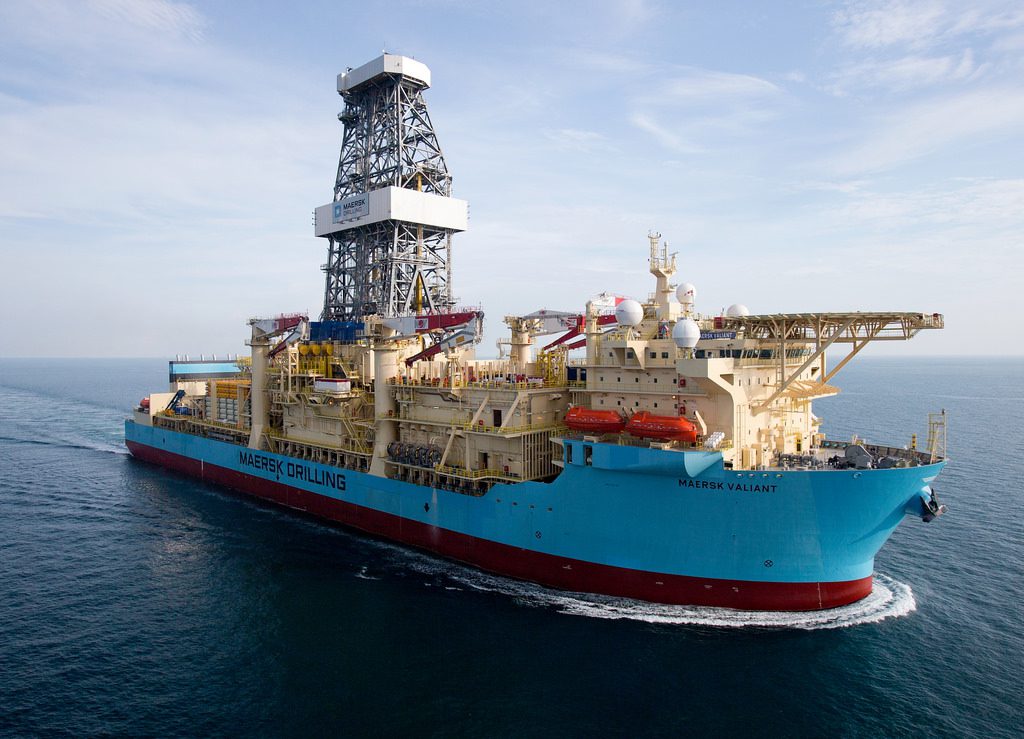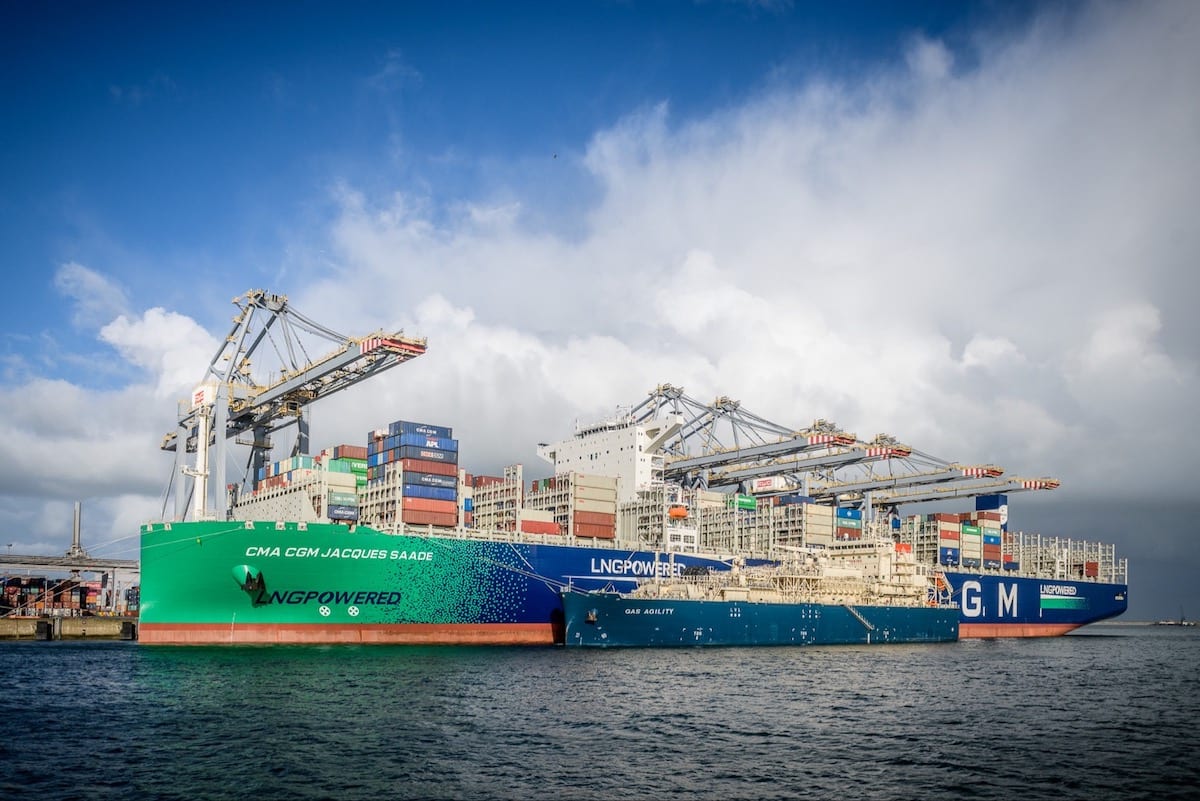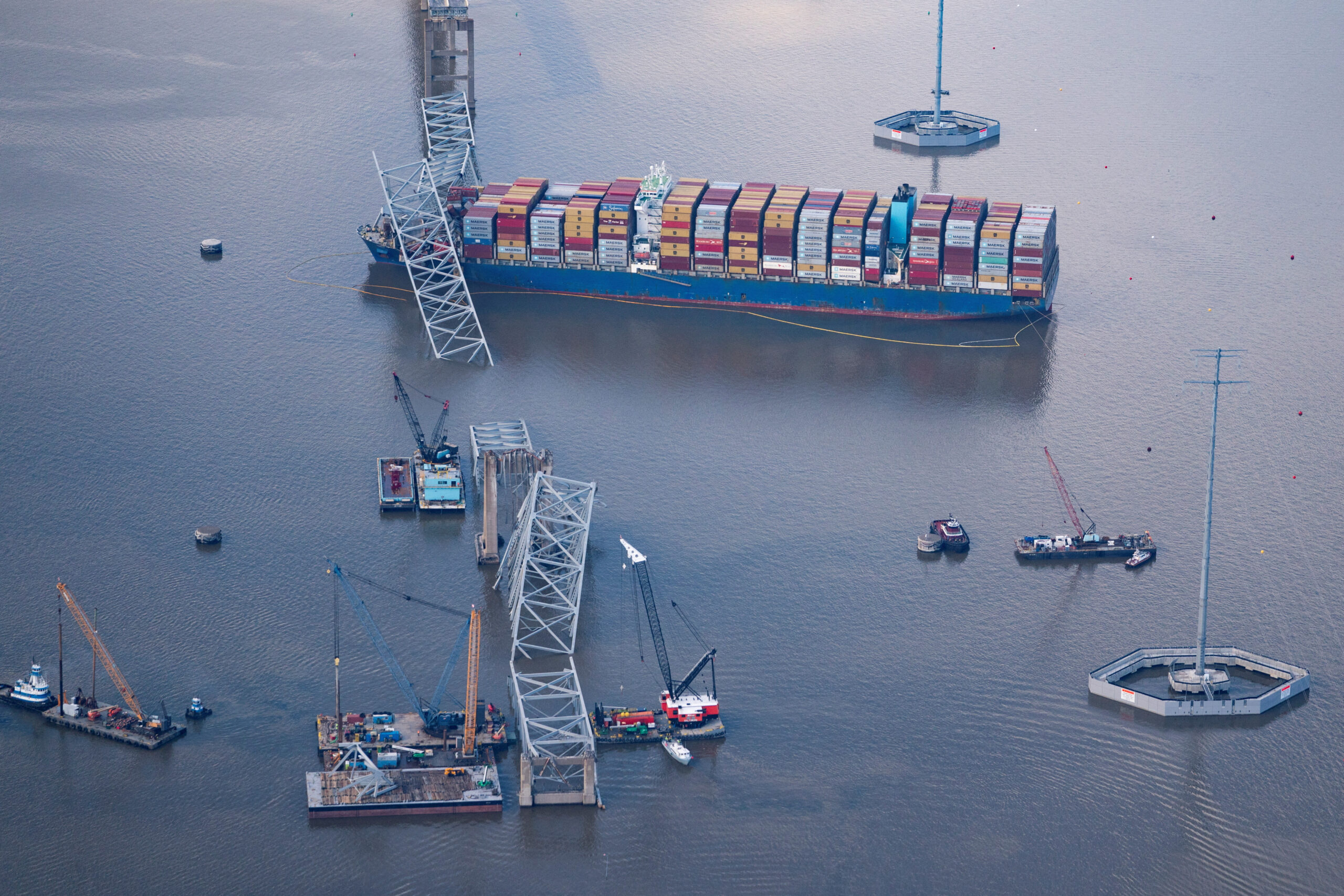Maersk Drilling’s ultra-deepwater drillship Maersk Viking. Photo: Maersk Drilling
By Chris Hughes
(Bloomberg Gadfly) — AP Moeller-Maersk is the latest company to do the splits. But the Danish conglomerate isn’t going for a dramatic breakup all in one go, like a certain Hollywood power couple. It’s letting the marriage between its two main business activities — transport and oil — fizzle out. While they’re officially separating, they’ll still live together for a while. That may be best for both parties.
Maersk’s operating environment could scarcely be worse. Its container shipping and ports business is in a sector plagued by overcapacity. Meanwhile, its oil services units cater to an industry that’s cutting back on drilling amid a global glut of crude.
It’s not easy to respond to all this, other than by cutting costs and taking part in consolidation. Maersk isn’t wasting the crisis and the opportunity to be more radical. It sees more potential for growth in transport and logistics than oil and so wants to focus investment on the former. As a result, the energy-related assets will be put in a single division to be run for “value”. Instead of chasing expansion, there will be limited new investment for the unit — which contributed 24 percent of sales last year — while some constituent bits will probably be spun off, sold or merged over the next two years.
This is a change both in structure and strategy for Maersk. In the short term, the group will have the same assets and probably perform no differently. But the direction of travel is clear: it will try to find homes for bits of the oil business, leaving Maersk as a purer transport and logistics group.
Investors want this. Maersk shares have risen 23 percent against a flattish European market since newish CEO Soeren Skou launched a strategy review in June. That’s added 38 billion Danish krone ($5.7 billion) to the market value, currently 205 billion Danish krone.
The gain received partial justification on Thursday with the disclosure of a possible $600 million of annual financial benefits to be achieved from bringing together Maersk’s transport businesses. Still, Maersk trades on 14.9 times next year’s estimated earnings against a global peer average of 12.4.
A corporate reorganization will not magic up external demand or eliminate industry overcapacity. But governance and structure are the starting point for delivering on a strategy and the new-look Maersk is a better investment than the old.
Three senior execs, including the finance director, are leaving too, with no apparent theatrics. Maersk is going to be smaller in future, and so is its management team, and that’s just fine. Other conglomerates weighing similar moves — Switzerland’s ABB, for instance — should take note.
This column does not necessarily reflect the opinion of Bloomberg LP and its owners.
© 2016 Bloomberg L.P
Unlock Exclusive Insights Today!
Join the gCaptain Club for curated content, insider opinions, and vibrant community discussions.

 Join The Club
Join The Club













